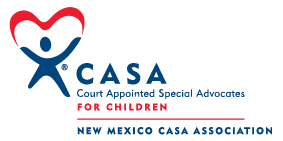Peacemaking Resources

Urban Native American Healing to Wellness Court
The mission of the Urban Native American Healing to Wellness Court is to create an atmosphere of healing through best practices and traditional methods in pursuit of spiritual and physical recovery for Native Americans with two or more DWI convictions who meet the Healing to Wellness Court criteria.
The program includes Native American Specific Treatment such as talking circles and sweat lodges, which are meant to encourage peer support and build a sense of community for those in the program while connecting with their culture. In addition, the program follows evidence-based practices to support the rehabilitation of the offender, while holding them accountable. Through the use of graduated sanctions, positive reinforcement and focusing on the treatment of the disease by individualized substance abuse treatment, we are able to address causative factors associated with the offense. The goal of the program is to reduce incidents of DWI, reduce the number of victims affected by DWI, and improve our community’s safety, while changing the lives of each participant through healing, treatment, and by providing a support system to each participant. The program consists of a multifaceted team which includes the presiding judge, the Honorable Judge Renée Torres, two probation officers, a program manager, a lead worker, a specialty court division director, an assistant district attorney, a public defender, and clinical treatment staff who are all dedicated to the mission of the program.
The Center for Court Innovation produced a video highlighting the program: https://courtinnovation.app.box.com/s/h140az1vagukt0n9i0ww3pvd3pakphtt

Featured Peacemakers
Click on “About Peacemaking”
Video on Peacemaking with Robert Yazzie, Chief Justice
Peacemaking continues to evolve and takes many forms as each tribe or community establishes and develops a program that is true to its cultural beliefs. Below are some profiles of peacemaking in action as well as some of the best writings that we have found related to peacemaking.
Robert Yazzie, Chief Justice Emeritus – Navajo Nation

Restrictive Justice Practices of Native American, First Nation and other Indigenous People of North America
Part 1:
Part 1: Includes interviews with three justice practitioners of the southwestern United States: The Honorable Robert Yazzie, chief justice emeritus of the Navajo Nation Supreme Court; Judge Joseph Flies-Away of the Hualapai Nation; and James Zion, formerly solicitor to the Navajo Nation Courts, currently domestic abuse commissioner at Crownpoint, New Mexico, Family Court.
Part one is a series of articles about restorative justice practices of indigenous people of North America. This series is not intended to be all-inclusive, but rather an overview of practices.

Websites on Peacemaking:
-
Indigenous Peacemaking Initiative (NARF) Provides information on indigenous peacemaking and tools to help with communities.
-
Highlights of a Roundtable Discussion Among Tribal and State Practitioners
Can Peacemaking work outside work in non-tribal communities?
https://www.courtinnovation.org/
A peacemaking session is lead by one or more peacemakers. They are elders, respected members of the community, involved with tradition and religion. They use storytelling to help reach an outcome that benefits families or communities.
Peacemaking Circles: Justice in Tribal Communities

A Peacemaking session held between the Native American Rights Fund (NARF) and the Choctaw Nation of Oklahoma, scenario, used a mock trial as a training tool. This case was centered on a fictional set of parents with one son, Anthony. When Anthony was young, his mother died and in his grief Anthony’s father, John, became a reckless alcoholic
Returning to the Circle: The Reemergence of Traditional Dispute in Native American Communities
https://scholarship.law.missouri.edu/
The use of peacemaking circles in cases of sexual assault and abuse the Hollow Water community illustrates cultural ideas and conflict within the court system. Involving the community in the sentencing of a sexual offender not only empowers the victim by giving her an active role in the process but also accountability.
Circle Peacemaking
The Kake, Circle Peacemaking Program incorporates Tlingit culture into the justice system. This program will address the underlying issues that lead to crime and conflict. The Circle peacemaking will focus on healing relationships. It focuses primarily on cases involving youth, but has expanded to handle adult cases.
April is National Child Abuse Prevention Month
© 2021 New Mexico CASA | A member of the National Court Appointed Special Advocates Association ®

